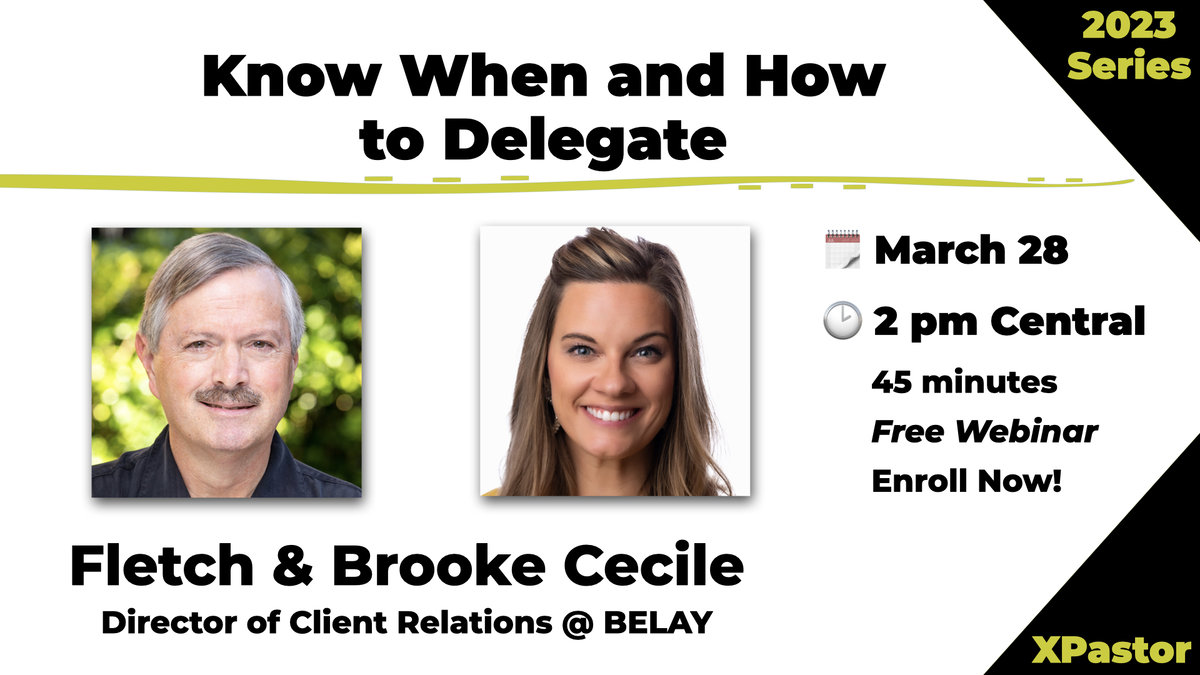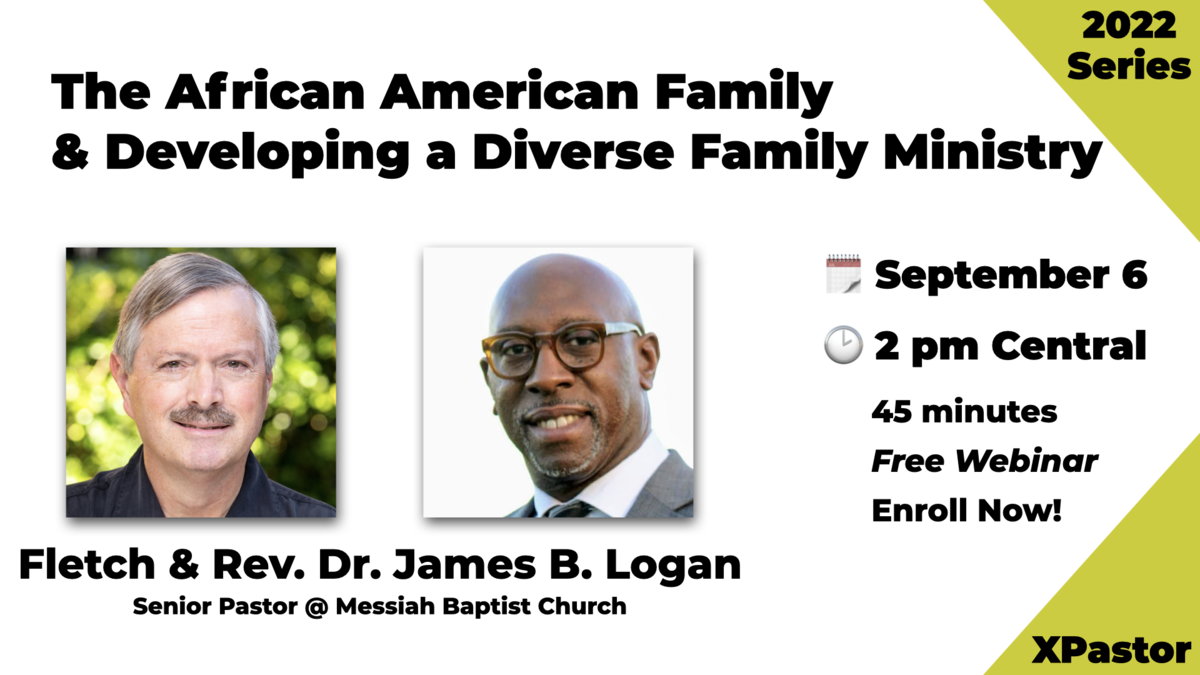XPastor tries to help churches by providing some of the essentials for running a church—items like job descriptions, employment applications, review forms and policies. Below is a 1997 Social Activism Position Paper by Henderson Hills Baptist Church of Edmond, Oklahoma.
Definition of a “Cause”
The purpose of this paper is to discuss our response to values-related social causes and activism. We will define a “cause” as the moral or social issues faced by our society. How can Henderson Hills Baptist Church most effectively confront the evils of our day? This is our subject.
Causes are a major topic of debate in America. Ethics, morality and “the radical religious right” are often featured in newspaper and television news programming. Some Christians are developing a siege mentality from the landslide of criticism proceeding from the liberal establishment. Other Christians can best be described as “militant” for their special cause. All of this is creating a great deal of tension, both within the boundaries of the church and from our critics on the outside.
Because of America’s rapid march away from biblical standards of morality, many Christians are understandably outraged and frightened by what is happening to our society. Some are becoming activists, developing or joining organizations to denounce social evils. Significant emotional involvement often accompanies our determination to do something to stop the country’s moral decline.
Christians are called to live holy lives and to take a stand for truth and right. The question we face is how to respond to the immorality of a godless social structure. It is popular, in evangelical circles, to see this as a simple black and white situation. The theory is to confront the issue head on, with as much fury and vibrato as possible, and slay the dragon before it can do any more damage! In this document, we will explore some of the deeper issues involved in our responsibility to deal with values-related social causes.
Problems the Church Faces in Relating to Activists
Problems lie as land mines on the field of combat in the war between the church and a godless society. Understanding the nature of these land mines and knowing their location provides protection for us and a swifter overthrow of the enemy.
One of these problems is the tremendous proliferation of cause-centered activists and groups. Please understand—the problem is not with the people or groups, it is the dramatic increase in their numbers and concerns. During a three-month period of time, in 1994, twenty-nine cause-oriented organizations and special interest groups asked Henderson Hills Baptist Church to take an active role in supporting their concerns. In addition to these groups, there are a number of mission organizations, public service organizations and institutions of higher learning that make regular appeals for help and support. The vast majority of these groups offer an important and effective service. However, the escalating number of these organizations is overwhelming.
What do all of these organizations and individuals have in common? Besides seeking endorsement, volunteers, publicity and money, they are committed to their cause. To the “pro-life” advocate, nothing could possibly be as important as stopping the terrible slaughter of American children. To the person involved in the anti-pornography or anti-gambling movements, theirs is of greatest significance.
It’s hard to disagree with them. Abortion, pornography and gambling are cancers growing on the American heart. We must do what we can to stop them. Yet, there is another issue involved here. If a church focuses on all of these issues, when will that church have time to worship, preach and teach the Bible or perform its other God-given tasks? How can a church choose between stopping abortions, pornography or gambling? This is a source of growing concern among well-informed believers.
Another problem the church faces, in dealing with values-related causes, is the lack of accountability and stability in many activist groups. Apparently we are experiencing a proliferation in the number of organizations and businesses dedicated to various causes.
Twenty years ago, a pastor would probably have received only one or two requests per year, asking to involve the church in some special emphasis related to a social ill. Not so today! It is not uncommon for a pastor to receive one or two requests per day. The avalanche of appeals is staggering!
How should church leaders respond to these requests? Many read the literature from these organizations and ask their congregations to become involved. Tragically, this can later become a real embarrassment to both the pastor and the church. It is terribly difficult for a church leader to verify the claims, check the credentials, document the use of financial support and validate the methodology of these cause-oriented groups.
The sad fact is these organizations are not always what they seem to be on the surface. Many cause-oriented groups are not accountable to a licensing board or supervisory agency. Without accountability, excesses and corruption can flourish. How can a church leader determine if a group is what it claims to be? How can they be certain that the organization isn’t led by an unscrupulous businessperson that is trying to line his own pockets? How can they verify where contributions are actually being invested in the stated cause? How can they protect against some future incident, which will embarrass the church because of its affiliation or endorsement of the activist organization? Few churches have the will, time or ability to satisfactorily answer these questions. Church leaders must treat their sacred trust with the utmost care. If they lead the church into embarrassing relationships too often, they will lose the trust of the congregation.
This is not to say that every activist group is bogus or fraudulent. Most of them are led by wonderful men and women who have a real passion for their cause. However, the rapid growth of such organizations, and the lack of solid track record or accountability systems, necessitates careful analysis before support is given.
One of the greater tensions we face exists in differentiating between Biblical truth and personal opinion. The Bible should be our sole authority for determining truth. However, our human tendency is to allow the opinions of people, our traditions and the norms of society to color our understanding of truth. When we view the Bible and formulate our opinions of right and wrong through these filters, we may then arrive at erroneous opinions and convictions. Why do some religious groups live in communes, require women to wear head coverings and drive only a horse and buggy? Why do some require their ministers to refrain from marriage and reject certain foods? The reason is, they have formed their understanding of morality through an inadequate method of understanding the scriptures.
Yet, the Bible doesn’t attempt to provide complete answers to every choice we make. The surprising fact is, it offers us very few lists of dos and don’ts. As every student of scripture knows, God does tell us that some actions will always be wrong. There are definite black and white issues. However, we are also allowed the freedom to use godly wisdom in making many decisions. Some Christians have definite convictions about going to the theater, eating in restaurants that serve alcohol, mowing the lawn on Sundays and using musical instruments in worship services. Other sincere Christians do not hold these same convictions. This can produce some lively discussions.
When the church is faced with the decision of becoming activated to a cause, it can become divisive to that congregation. Where there is not obvious biblical instruction, the members have the freedom to develop their own opinions on the given subject. It is interesting to see one sincere Christian with no conviction on an issue and his fellow church member who wants to make that same issue into the eleventh commandment. A church risks “the unity of the Spirit” when it becomes proactive in every cause that is presented, especially when the cause relates to a matter of choice.
Still another challenge related to the cause-oriented approach involves the purpose of the church. Why does Henderson Hills Baptist Church exist? We must never forget that the Lord Jesus is the One Who established the church. He has His own purposes for this great work. It is our obligation to conform our thinking to His leadership.
What does the Bible tell us about the purpose of the church? We could look at dozens of references and write hundreds of pages on this question. However, Jesus does offer us a great summary of His teaching on this subject. In His final instructions to His disciples, which we call the Great Commission, Jesus gave a comprehensive purpose statement for His church. This is recorded for us in Matthew 18:19-20, and expanded upon in John 20:21; Mark 16:15-16; Luke 24:46-47; and Acts 1:8. In these, and many other passages, God makes it clear that the purpose of the church is to spread His Word, do the work of evangelism and discipleship. Our object is for the lost man to accept Christ and to become a fully devoted follower of Christ, capable of the personal involvement in this sacred process of evangelism and discipleship.
There are a hundred, or perhaps a hundred thousand, other good activities in which the church can become involved. That is a major part of our problem. Some churches are without focus today! Every church is under a constant temptation to abandon the essence of our existence to accomplish other activities. We must remember why we are here and concentrate our resources on that responsibility. A cause-oriented church can end up losing their evangelistic zeal and commitment to discipleship. They can become so busy doing good things that they forget the main thing they are designated to do.
A major difficulty we face in dealing with moral and social issues is the use of the flesh to “serve God.” The Bible makes two principles crystal clear when it comes to serving God in this world. We must not try to serve God from the power of the flesh. We must serve God in the power of His Spirit (Zec. 4:6, NASB) “Then he answered and said to me, “This is the word of the LORD to Zerubbabel saying, ‘Not by might nor by power, but by My Spirit,’ says the LORD of hosts.”
When we resort to our own powers of manipulation, schemes, worldly wisdom, political contacts or ungodly methods as tools to accomplish a good work, we render that work spiritually void. God isn’t glorified in this situation and the accomplishments have no lasting value. James 1:20 gives us this insight, “for the anger of man does not achieve the righteousness of God.” Jesus said it like this in John 18:36 “… My kingdom is not of this world. If My kingdom were of this world, then My servants would be fighting …”
Unfortunately, it would seem that many Christians are using the flesh in an attempt to serve God in cause-oriented activities. The bombing of abortion clinics and murder of physicians who perform abortions are examples of this.
Those who use these methods may attempt to justify themselves by referring to Peter and John’s statement concerning civil disobedience. Luke records the event in this way, “But in order that it may not spread any further among the people, let us warn them to speak no more to any man in this name. And when they had summoned them, they commanded them not to speak or teach at all in the name of Jesus. But Peter and John answered and said to them, ‘Whether it is right in the sight of God to give heed to you rather than to God, you be the judge; for we cannot stop speaking what we have seen and heard’” (Acts 4:17-20, NASB). A careful reading of this reference reveals this was a very specific situation that required an unusual response. If the government requires disobedience to God, we must obey God. Of course, that isn’t the issue Christians normally face today. The government doesn’t require that we have abortions and God doesn’t require that we bomb abortion clinics or kill abortionists. The use of the flesh, in attempting to accomplish a godly act, is a dangerous approach to use.
Many scriptures teach us that a fetus is a human being. As such, the unborn is to be nurtured and protected. These are truths that any informed Christian will recognize. The question is about how we should protect them. The use of ungodly methods never accomplishes a godly end. Spiritual objectives are accomplished by spiritual men and women who utilize spiritual methods. The same rationale can be used with many other causes. You see, this is a subtle problem, but it is also an issue that strikes at the very center of what it means to serve God.
Closely associated with this issue is another dilemma the church must face. We can find ourselves involved in inappropriate alliances, due to our desire to accomplish a good work.
Do the ends justify the means? Most of us would strongly oppose this type of situational ethics. It is a fundamental tenet of scripture that character and motivation are of highest importance. Yet, many evangelicals today are compromising in this area to accomplish their cause-oriented agendas.
On June 17, 1994, The Daily Oklahoman published a front-page story titled, “Southern Baptists Embrace Catholics.” The article describes an increasing desire of the two denominations to dialogue and work together. Two excerpts offer wonderful insight. The paper quotes Timothy George, Dean of Beesom Divinity School in Montgomery, Alabama, as saying, “We live in a land where there is a demonic onslaught against the forces of decency and righteousness, and we need to stand with good people together.” Later in the article, the writer states, “Baptist leaders said Thursday the experience of working with Catholics on abortion, pornography and other issues helped bring the 15.4 million-member denomination to the point of seeking closer relations in other areas.”
A similar concept is promoted in a paper titled, “Evangelicals and Catholics Together: The Christian Mission in the Third Millennium.”
This is a twenty-five-page document that was made public at a press conference on March 29, 1994 in New York. Such notables as Charles Colson, former Watergate figure and president of Prison Fellowship; Kent Hill, president of Eastern Nazarene College and former director on the Institute on Religion and Democracy; Pat Robertson and Bill Bright, president of Campus Crusade for Christ, were among the evangelical leaders who joined with Roman Catholics to affirm an ecumenical accord. Their statement of purpose reads, “Our present statement attends to the specific problems and opportunities in relationship between Roman Catholics and Evangelical Protestants.” What are the origins of this accord? The document describes that the impetus for the movement in this way, “The pattern of convergence and cooperation between Evangelicals and Catholics is, in large part, a result of common effort to protect human life, especially in the lives of the most vulnerable among us.” In other words, this ecumenical movement is rooted in a cause-oriented movement, which desires to establish political change in the United States. It is interesting to note that the accord goes so far as to apologize for our evangelizing Roman Catholics.
The problem this represents is obvious to the informed Christian who understands the vast difference that exists between Catholic and Biblical theology. Baptists, along with the countless number of other Bible-believing Christians throughout the past twenty centuries, believe that it is by grace alone, through faith alone, in Christ alone, that we are made right with God. Paul wrote in Ephesians 2:8, “For by grace you have been saved through faith; and that not of yourselves, it is the gift of God.” This is not the belief of Catholic theology. Catholics have added many additional acts, rites, symbols and rituals to “grace alone through faith alone in Christ alone.” Thus, they have taken gigantic steps away from the Bible’s simple plan of salvation. An aim of “seeking closer relations” with the Catholic Church is, indeed, a hazardous one. Some may interpret this as an endorsement of their system of religion. For centuries, many have tried this tactic, only to find themselves weakened and damaged in the process. This document is a kind of “reverse Reformation” threatening to destroy the work which the reformers were martyred to offer us. Tragically, it is through our activist cause-oriented interests we are being drawn into this same kind of union. We must learn from history; the ends don’t justify the means.
An extremely serious difficulty we encounter in relating to the cause-oriented philosophy is that of losing focus. Speaking at the Oklahoma Christian University of Science and Arts, in April 1993, George Gallup said, “A lot of churches get so concerned with issues they don’t really strengthen the core faith, which of course is Jesus Christ for a Christian. We’ve lost the center. We don’t have a strong center.”
Gallup offers us a profound truth. Many churches are waging battle on too many fronts. Mainline protestant churches did this earlier this century. Their causes were not the same as ours today, but they do show what happens when a church loses focus. They were concerned with housing, hunger and other examples of social injustice. Could anyone question the fact that it is a tragedy for a person to be homeless, hungry or unjustly treated? No, of course not! Yet, as these denominations were drawn deeper and deeper into these battles, they lost their evangelistic heart. The result of this is tragically obvious. They have strayed from their Bible-centered roots and are experiencing mass defection from their ranks. What was true from them earlier in this century may well be true of evangelicals in the later part of the 20th century (see closing illustration).
Evangelical pastors, as well as their counterparts in the pew, are being inundated by a constant flood of Christian psychologists, cause-related para-church organizations and special interest groups pronouncing doom on our “Christian nation” if we don’t dedicate ourselves to their cause. For the most part, these are well-intentioned people who fervently believe in their cause. However, they do not have a panoramic view of the work of the church. Because of the fervency of their bias and the well-manicured approach, many pastors and laymen have defected from the Great Commission to lay siege against an ever-growing list of social problems. This strategy offers us immediate gratification, but produces little long-term change for the good. That is why there is a continuing downward spiral of moral decadence—even though there is a constantly increasing roll of organizations dedicated to exposing the evil and putting a stop to it.
I recently discussed these matters in a telephone conversation with a leader of a cause-oriented organization. He had called me to solicit my involvement in his organization’s activities. Parenthetically, I might mention that he was the third such solicitor for a cause-related organization that week! The caller accused me of being apathetic, or even condoning the sin his organization was fighting.
The Aim of our Refusal to Become Cause-Oriented
Does a refusal to become cause-oriented infer apathy toward, surrender to or support the social evil? If that were true, it would mean that prior to the past two century, the church has done essentially nothing to confront social evil through our history. We are aware of very few churches or Christian organizations involved in such confrontations, or utilizing modern tactics in the two thousand years of our history. Actually, on the few occasions the church became cause-oriented, the results have been disastrous. The Inquisition and the Crusades are perfect examples of what a cause-oriented approach can lead to. We certainly do not find examples of today’s activism in the scriptures. Consider the lives of biblical characters. Jesus didn’t focus His ministry on attacking the sins of the flesh. The apostle Paul didn’t organize a para-church organization to fight the social evil of slavery. The apostle John did not instruct the church he pastored to develop a systematized ministry to offer relief to the needy. Instead, Jesus, Paul and John emphasized a personal relationship with God and application of biblical truth in daily living. Jesus offered sinners forgiveness and a fresh start in life. Paul talked about slaves honoring God in their relationship with their masters. John stressed individual Christians ministering to the needs of those people God brought into their lives. These are the examples we should emulate.
Has the church been nonchalant about sin or unconcerned about the needs of people? No, God has another plan for how His church is to deal with these problems. The church has a “soul” responsibility that influences and transforms every aspect of a person’s life.
The “soul” responsibility of the church. Is it possible for the church to fight abortion and pornography, protect the environment, oppose homosexuality, provide housing for the homeless and be a restraining force against the use of drugs and alcohol? Without any doubt, the church can, and some believe must be involved in these arenas. However, could these activities also be done by another group of concerned people, perhaps a para-church organization? Could these tasks be undertaken by the person who isn’t a Christian? The answer is resoundingly affirmative. What, then, is the unique assignment of the church?
The Bible says the church has the commission to focus on the ministries of evangelism and discipleship. That is a sobering thought, isn’t it!
Churches throughout America are focusing their attention on activities that even non-Christians can do, while neglecting the essential work that only the church can do! Is that to say that it is wrong for Christians to fight against social evils? No. But the church, as a body, must focus its energies and resources on that which transcends individual values-oriented causes.
We must do what we do best. When we, through the power of the Holy Spirit, lead a lost person to Christ, that person undergoes an eternal change. Positionally, he is transferred from the Kingdom of Darkness into the Kingdom of Light! As this Christian is discipled, his lifestyle begins to experience a transformation. Sin is replaced by holiness. Irresponsible behavior is transformed by the Holy Spirit into moral and godly actions. Ponder the magnitude and scope of this incredible truth! God empowers His church, and only His church, to be involved in this greatest of all endeavors.
Consider the divergent results of a cause-oriented approach and an evangelistic-discipleship-oriented approach in dealing with social evil. If we block access to an abortion clinic or use some other means of hindering the work of the abortionist, we may save the life of an unborn child on a given day. That, without doubt, is a wonderful outcome! However, if we lead the mother to Christ, and teach her to become a responsible disciple, we rescue her child and change the mother’s life and eternity. The notion that it is apathetic, or even supportive of social evil, to refuse to become involved in a proactive cause-oriented crusade, is nonsensical and totally devoid of biblical truth. The church’s work is not reformation, but regeneration! We are not here to clean up sin, but to be used by the Holy Spirit in changing the sinner.
Thoreau said, “For every thousand hacking at the leaves of evil, there is one striking at the root.” Only the church can strike at the root of sin. Evangelism and disciple-making are the tools of our trade. No organization, business or enterprise in the entire world has this opportunity or responsibility.
To carry Thoreau’s botanical illustration a bit further, let’s consider the apple tree. If you had an apple tree, and desired to change it into a peach tree, what would you need to do to accomplish this radical feat?
You could pick all the apples and tie dozens of peaches on the limbs of the tree. However, it would only take a few days for the peaches to rot and the truth to be revealed. Even with the past season’s fruit removed, and replacement fruit attached, the fact remains; you would still own an apple tree.
How can you change an apple tree into a peach tree? You’d need to start at its roots. You’d need to change those apple tree roots into peach tree roots. Of course, not even an experienced botanist can accomplish that assignment! Only God can change apple tree roots into peach tree roots. God Himself can only accomplish such monumental changes in character.
Many Christians are attempting to pluck the undesirable fruit of a godless society and replace it with fruit of our own liking. Unfortunately, it is a futile attempt. God’s stated desire is for us to focus on the root of society’s problems, the need for the Savior. The church’s work is not the picking of evil fruit! Ours is the work of excavating the evil roots of the individual who is without Christ. We do this by leading them to Christ and helping them to become fully devoted followers of our Lord. This is the only way to make a material transformation in an evil society.
Our objective is not reformation, but regeneration. Jesus said it this way, “My kingdom is not of this world. If My kingdom were of this world, then My servants would be fighting, that I might not be delivered up to the Jews; but as it is, My kingdom is not of this realm” (John 18:36, NASB).
An individual angrily informed me that Henderson Hills Baptist Church was doing nothing to fight a particular social evil. Quite frankly, I was shocked and dismayed to hear such an animadversion from a person who was, at least supposedly, a mature Christian. I asked how he could arrive at such a conclusion. His answer was very simplistic and ill conceived. He reasoned that if there is no announcement made from the pulpit regarding an activist sponsored event, then the church is ignoring its responsibility to combat the social evil. Apparently this well-intentioned Christian doesn’t understand that preaching and teaching the life-changing truths of scripture, winning the lost and discipling the saved are the most profound and effective means available for changing the moral climate of a nation.
The Place and Problem of Para-Church Organizations
A peculiar and uneasy relationship exists between the church and the many para-church organizations involved in confronting the social evils of our nation and world. On the positive side, these organizations provide a channel and outlet for Christians who feel passionately about an issue. There are literally hundreds of these organizations providing needed information and assistance. The Oklahoma City area is home to an organization dedicated to a worldwide ministry of feeding hungry children. According to all reports, they do a fine job, as does a local anti-pornography ministry and an organization caring for the needy. These are but a few of the fine para-church organizations in our region. Nationally, Dr. James Dobson’s Focus on the Family ministry is doing an unparalleled work in a vast cause-oriented work.
Unfortunately, there is a downside in the relationship that exists between these organizations and the local church. Because they are so numerous, they generate a constant barrage of requests for financial and volunteer assistance. A church leader receives many solicitations, by mail, telephone and personal visits, from representatives of these organizations. Each one has a common conviction; theirs is the most important and urgent problem. When their requested assistance isn’t provided, they often interpret the refusal as ambivalence toward, or even acceptance of the social evil. This process is creating an increasing state of antagonism between some church leaders and the passionate para-church worker.
Christian Life Commission, Southern Baptist Convention
Henderson Hills does help support an organized approach to changing public policy. The Southern Baptist Convention, of which Henderson Hills Baptist Church is a cooperating church, operates a moral concerns, public policy and religious liberty agency known as the Christian Life Commission. In 1995, our church will contribute over $160,000 to the Cooperative Program. A portion of our contributions is used by the convention to provide funding for this agency. As we work together with nearly 40,000 other churches, we are working to change public policy, via this agency.
The CLC is also an information source. Their publication, Salt, can be ordered with a voluntary subscription of $10 annual. Along with this subscription, interested parties will also receive the CLC’s ethics magazine Light. To order these publications contact the Christian Life Commission, 901 Commerce, #550, Nashville, Tennessee 37203-3696.
The Proactive, Cause-Oriented Christian
Is there a place in Henderson Hills Baptist Church for the proactive, cause-oriented Christian? Without a doubt there is plenty of room at our table for this person. The Lord sometimes places within the Christian heart a passion for involvement in these ministries.
Henderson Hills has a desire to encourage these believers to perform their God-given assignments. This empowerment may come through prayer, by encouraging the development of ministry teams or providing education and accountability for the cause-oriented brother or sister. However, the proactive, cause-oriented Christian must also understand that the direction of Henderson Hills Baptist Church will not be toward sensationalism or a cause-oriented ministry. As our teaching ministry is led toward passages of scripture containing references to social evil, we will address them with vigor and zeal. However, we will not make a deliberate attempt at the enlistment of our members into becoming involved in a crusade.
The Position of Henderson Hills Baptist Church
What is the position of Henderson Hills Baptist Church concerning social injustice and wickedness? In June 1992, the church approved the following statement. “Helping people improve their relationship with God is a more urgent need than confronting their actions. Our focus is to affect change from the inside out, not from the outside in. Society is best changed by changed people.” Scripture references used in our understanding of this principle include, but are not limited to Luke 19:1-9; John 8:1-11; John 12:1-11.
This statement speaks to the ministry of the church as a body.
However, it is also recognized that the individual members of Henderson Hills Baptist Church may be convicted to an involvement in a more proactive, cause-oriented approach. In a way, their involvement does represent the ministry of the church as a whole. The apostle Paul, in Romans 12 and 1 Corinthians 12, describes the church as a body, and the individual members are appendages of that body. Yet, it is our commitment to keep the focus of the church body on evangelism and discipleship. The Henderson Hills pulpit will remain focused on the preaching and teaching of God’s inerrant word.
A growing number of American Christians are reaching these conclusions about the proactive, cause-oriented approach to fighting cultural evils. Ken Myers, host and producer of Mars Hill Tapes, a bi-monthly audio magazine that examines issues in contemporary culture from a Christian worldview, and former producer and editor for National Public Radio, stated his position related to the subject in the March/April 1995 edition of Discipleship Journal. He said, “The key to renewal is changing minds, not laws.” He goes on to say, “Our duty in this time of crisis, as in all times, is not one of coercion, but of service and persuasion. Christ’s first coming was a coming in mercy. We are called to be ministers of His mercy—first by proclaiming the reality of grace and the necessity of repentance, then by following the example of Christ’s humility.”
Stephen Lang, a published Christian author and freelance writer, also addresses this issue in the same edition of Discipleship Journal.
Lang makes the following statement, “Throughout history, Christians have tried to change society for the better. As we have seen, some attempts are highly successful, some moderately so, and others complete failures. If we pull a common factor from the success, we learn it is better to change hearts than to force legislation. If just one sinner is transformed, then so is society. With each transformation, the world is salted and lighted. As C.S. Lewis said, ‘He who converts his neighbor has performed the most practical Christian-political act of all.’ With evangelical Christians having had such a strong voice in the most recent elections in the United States, perhaps we would do well to ponder that point.”
In the March 6, 1995 edition of Christianity Today, John D. Woodbridge tackles this issue. He asks the question, “Is our actual concern to see a vital Christianity flourish, or is it to secure a more orderly and less violent society to live out comfortable and self-satisfied lives? He further pursues the problem of a cause-oriented approach by saying, “And should we not share with clarity the transforming gospel of Christ with our fellow Americans? For as Saint Paul declared, it is the gospel which is the power of God unto salvation (Rom. 1:16). And it is that gospel, fostering reconciliation among people, which has the ultimate power to tame the ferocity of America’s cultural wars.”
Finally, Dr. Michael S. Horton’s excellent book, Beyond Culture Wars, is devoted to helping conservative American Christians recognize the great harm that is being done by the proactive, cause-oriented approach to dealing with social evil. Dr. Horton writes of a conversation he had with a homosexual. In referring to that young man Dr. Horton said,
But what if I happened to attend a church where he could likely hear the pastor announce that there was going to be a march later in the month to oppose ‘those radical feminists, homosexuals and other perverts who are corrupting our wonderful nation’? I am not saying that it is not the church’s place to condemn homosexuality; clearly it is. But the church’s condemnation is spiritual not political; it warns of the heavenly sword, not an earthly one. Furthermore, it offers a heavenly truce for anyone who is willing to put down the arms and embrace God as Father through the blood of Christ. At last, a conversion accomplishes what coercion could never secure.
Summary
In summary, we recognize and deplore the intensification and proliferation of many social evils in our nation today. The church is called to be salt and light in this tasteless, decaying and dark hour. To do this, we must evangelize the lost and disciple the saved. This is the way Henderson Hills Baptist Church can most profoundly influence a holy transformation in the life and morality of the individual and the nation.
In the beginning of this paper I referred to America as a “field of combat between the church and a godless society.” This is the terminology of the popular rhetoric of our day. After considering these principles, should we choose better terms? America is not a battlefield. It is a mission field. There is a desperate need for today’s church leaders and members to understand it in those terms.
Perhaps we can best visualize the dilemma facing conservative, evangelical, Bible-believing churches today in this manner. On a dangerous seacoast, notorious for shipwrecks, there was a crude little life- saving station. Actually, the station was merely a hut with only one boat … but the few devoted members kept a constant watch over the turbulent sea. With little thought for themselves, they would go out day and night, tirelessly searching for those in danger. Many, many lives were saved by this brave band of men who faithfully worked as a team in and out of the lifesaving station. By and by, it became a famous place.
Some of those who had been saved, as well as others along the seacoast wanted to become associated with this little station. They were willing to give their time and energy and money to support its purpose.
New boats were purchased. New crews were trained. The station that once was obscure and crude began to grow. Some of its members were unhappy that the hut was so unattractive and poorly equipped. They felt a more comfortable place should be provided. Emergency cots were replaced with lovely furniture. Rough, handmade equipment was discarded and sophisticated, classy systems were installed. The hut, of course, had to be torn down to make room for all the new equipment and furniture. By its completion, the lifesaving station had become a popular gathering place, but its objectives had begun to shift. It was now used as sort of a clubhouse, an attractive building for public gatherings. Saving lives, feeding the hungry, strengthening the fearful, rarely occurred by now.
Fewer members were now interested in braving the sea on lifesaving missions, so they hired professional lifeboat crews to do this work.
The lifesaving motifs still hung in the club’s decorations, though.
About this time a large ship was wrecked off the coast and the boat crews brought in loads of wet, cold, half-drowned people. They were dirty, some terribly sick and lonely. The beautiful new club suddenly be- came messy and cluttered. A special committee saw to it that a shower house was immediately built outside and away from the club so victims of shipwreck could be cleaned up before coming inside.
At the next meeting, there were strong words and angry feelings, which resulted in a division among the members. Most of the people wanted to stop the club’s lifesaving activities and all involvements with shipwreck victims … ”It’s too unpleasant, it’s a hindrance to our social life, it’s opening a door to folks who are not our kind.” As you would expect, some still insisted upon saving lives; this was their primary objective.
Their only reason for existence was ministering to anyone needing help. They were voted down and told that if they wanted to save lives in those waters, they could begin their own lifesaving station down the coast.
Shipwrecks still occur in those waters, but now, most of the victims are not saved. Every day they drown at sea, and so few seem to care.*
May the people of Henderson Hills Baptist Church never relinquish their focus! We must not allow ourselves to slip away from our God-given purpose to become preoccupied with other good works. We can most effectively save our nation by dedicating ourselves to the redemption and discipleship of our fellow citizens.
* Adapted from A Parable: Saving Lives by Chuck Swindoll.











